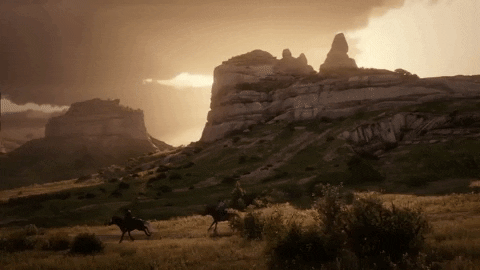#argive
Dioskouria

Dioskouriais the celebration of the hero-gods Kastor and Polydeukes (Pollux) - the Dioskouroi, sons of Leda, but from different fathers; Kastor from Tyndareus and Pollux from Zeus. Frequently referred to as the Lords, anakes, their festival is also known as Anakeiain Athens and they are often invited guests to a theoxeniameal.
In Sparta the Dioskouria was celebrated with sacrifices, rejoicings, and drinking (Paus. 4.27.1), and at Athens they would prepare a meal consisting of cheese, a barley-cake, ripe figs, olives, and garlic, in the Prytaneium. Known in their mortal lives as skilled horsemen, horse-races and similar games would have been common entertainment during the lords’ festival.
Frequent elements of the theoxeniaritual would also likely be common in their festival, including an invitation, the arrangement of meats, cakes, fruits, and wine on a table, with a ‘couch,’ decorated and made comfortable with rich textiles, available for the gods (or heroes, in other cases) to recline and enjoy the meal. The placement of the couch and the invitation are the main tributes that lend the word ‘xenia’ to the name as they are an act of hospitality and entertainment of a guest.
Personal Practice:
In Argos, near the grave of Argus and further along a sanctuary of Eilethya, is a temple to the Dioskouroi. In it were ebony wood statues of the Dioskouroi, their sons and their sons’ mothers, as well as statues in ebony wood and a little ivory of their horses. (Paus. 2.22.5)
Though appearing frequently in other Doric states, there is no clear evidence of the Dioskouria held in Argos. Therefore I have placed their festival in my calendar around the two weeks prior to the summer solstice in December, as this is the time when the Geminid meteor shower appears.
The Geminids were first discovered in 1862 and they occur because the Earth is travelling through the left-over material from the tail of the asteroid 3200 Phaethon. This asteroid is considered a rock comet which is an asteroid that shares some of the characteristics with a comet, including a comet tail, and it has surface jets. The Gemini Constellation after which the meteor shower is named appears in [the southern] sky around 10:00 pm so it’s best to go out and watch for them after midnight when Gemini is higher in the sky as the shower gets better throughout the night. (Perth Observatory, article for December 2021)
Perseus, Dictionary of Greek and Roman Antiquities
Argos and the Argolid R.A. Tomlinson pg.213
Cults and Rites in Ancient Greece pg.145-154
Apellai: Doric Civic Festival

TheApellai is a three day civic festival for initiating family and young men into the phratry, who controlled civic rights.
We can assume based on the similar Athenian festival Apatouria that the first day was a feast, the second a sacrifice to the paternal gods, and the third the initiation ceremonies and offerings by the initiates. Along with their sacrifice, a kouros, young man, would cut their hair and offer a lock of their hair to the gods. This is a practice attested for many gods who protect youths (Apollo, Herakles, the river gods, etc).
The festival is known to have occurred in several states and is proven to be practiced by all Doric states due to the inclusion of the month of Apellaios in their calendars. The association with Apollo is clear as his name appears in doric form ApellonἈπέλλων. Oaths were likely also given to Poseidon Phratrios and Zeus Patroos.
The father has to introduce his child first at the age of three, and again as a grown-up; and the husband has to present his newly married wife. The new entrant is led to the altars, and a sacrifice is due in each case; for a minor, lad, and marriage. All the Ionians have a three day festival Apatouria once a year, when the phrateres meet for a sacrificial banquet provided for from the entrance fees. Among the northwest Greeks, at least in Delphi, the Apellai have the same function, with the three corresponding sacrifices for child (paideia), youth (apellaia), and marriage (gamela).
Walter Burkert, Greek Religion pg 255
Today there are other government bodies that control civic rights and citizenship than the phratry, but it could be a time to celebrate approved visas, residency, or citizenship for those who live outside their country of birth. It could also be a wonderful opportunity to ‘initiate’ new and growing family members privately into the household. If performing this festival privately at home it could be appropriate to include your favoured household gods along with Apollo, such as Zeus Herkios and the Agathos Daimon.
